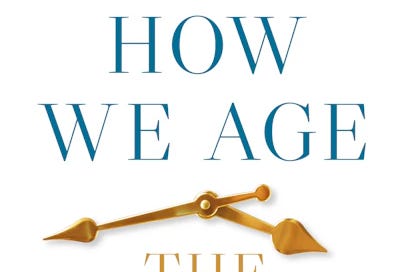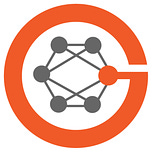“A few years ago, I might have chuckled at the naiveté of this question, but now it's not so crazy to think that we will be able to take some sort of medicine to extend our healthy lifespans in the foreseeable future.”—Coleen Murphy
Transcript with external links
Eric Topol (00:06):
Hello, this is Eric Topol from Ground Truths, and I'm just so delighted to have with me Professor Coleen Murphy, who has written this exceptional book, How We Age: The Science of Longevity. It is a phenomenal book and I'm very eager to discuss it with you, Coleen.
Coleen Murphy (00:25):
Thanks for having me on.
Eric Topol (00:27):
Oh yeah. Well, just so everyone who doesn't know Professor Murphy, she's at Princeton. She's the Richard Fisher Preceptor in Integrative Genomics, the Lewis-Sigler Institute for Integrative Genomics at Princeton, and director of the Paul Glenn Laboratories for Aging Research. Well, obviously you've been in this field for decades now, even though you're still very young. The classic paper that I can go back to would be in Nature 2003 with the DAF-16 and doubling the lifespan of C. elegans or better known as a roundworm. Would that be the first major entry you had?
Coleen Murphy (01:17):
Yeah, that was my postdoctoral work with Cynthia Kenyon.
Eric Topol (01:20):
Right, and you haven't stopped since you've been on a tear and you’ve put together a book which has a hundred pages of references in a small font. I don't know what the total number is, but it must be a thousand or something.
Coleen Murphy (01:35):
Actually, it's just under a thousand. That's right.
Eric Topol (01:37):
That's a good guess.
Coleen Murphy (01:38):
Good guess. Yeah.
Eric Topol (01:39):
So, because I too have a great interest in this area, I found just the resource that you've put together as extraordinary in terms of the science and all the work you've put together. What I was hoping to do today is to kind of take us through some of the real exciting pathways because there's a sentence in your book, which I thought was really kind of nailed it, and it actually is aligned with my sense. Obviously don't have the expertise by any means that you do here but it says, “A few years ago, I might have chuckled at the naivety of this question, but now it's not so crazy to think that we will be able to take some sort of medicine to extend our healthy lifespans in the foreseeable future.” That's a pretty strong statement for a person who's deep into the science. First I thought we'd explore healthy aging health span versus lifespan. Can you differentiate that as to your expectations?
Coleen Murphy (02:54):
So, I think most people would agree that they don't want to live necessary super long. What they really want to do is live a healthy life as long as they can. I think that a lot of people also have this fear that when we talk about extending lifespan, that we're ignoring that part. And I do want to assure everyone that the people in the researchers in the aging field are very much aware of this issue and have, especially in the past decade, I think put a real emphasis on this idea of quality of life and health span. What's reassuring is actually that many of the mechanisms that extend lifespan in all these model organisms also extend health span as well and so I don't think we're going to, they're not diametrically opposed, like we'll get to a healthier quality of life, I think in these efforts to extend lifespan as well.
Eric Topol (03:50):
Yeah, I think that's important that you're bringing that up, which is there's this overlap, like a Venn diagram where things that do help with longevity should help with health span, and we don't necessarily have to follow as you call them the immoralists, as far as living to 190 or whatever year. Now, one of the pathways that's been of course a big one for years and studied in multiple species has been caloric restriction. I wonder if you could talk to that and obviously there's now mimetics that could simulate that so you wouldn't have to go through some major dietary starvation, if you will. What are your thoughts on that pathway?
Coleen Murphy (04:41):
Yeah, actually I'm really glad you brought up mimetics because often the conversation starts and ends with you should eat less. I think that is a really hard thing for a lot of people to do. So just for the background, so dietary restriction or caloric restriction, the idea is that you would have to take in up to 30% less than your normal intake in order to start seeing results. When we've done this with laboratory animals of all kinds, this works from yeast all the way up through mice, actually primates, in fact, it does extend lifespan and in most metrics of health span the quality of life, it does improve that as well. On the other hand, I think psychologically it's really tough to not eat enough and I think that's a part that we kind of blindly ignore when we talk about this pathway.
Coleen Murphy (05:30):
And of course, if we gave any of those animals the choice of whether they want to start eating more, they would. So, it's like that's not the experiment we ever hear about. And so, the idea for studying this pathway isn't just to say, okay, this works and now we know how it works, but as you pointed out, mimetics, so can we target the molecules in the pathway so that we can help people achieve the benefits of caloric restriction without necessarily having to do the kind of awful part of restriction? I think that's really cool, and especially it might be very good for people who are undergoing certain, have certain diseases or have certain impairments that it might make it difficult ever to do dietary restrictions, so I think that's a really great thing that the field is kind of getting towards now.
Eric Topol (06:15):
And I think in fact, just today, it's every day there's something published now. Just today there was a University of Southern California study, a randomized study report comparing plant-based fasting-mimicking diet versus controlled diet, and showed that many metabolic features were improved quite substantially and projected that if you stayed on that diet, you'd gain two and a half years of healthy aging or that you would have, that's a bit of an extrapolation, but quite a bit of benefit. Now, what candidates would simulate caloric restriction? I mean, what kind of molecules would help us do that? And by the way, in the book you mentioned that the price to pay is that the brain slows down with caloric restrictions.
Coleen Murphy (07:10):
There's at least one study that shows that.
Coleen Murphy (07:13):
Yeah, so it's good to keep in mind. One of the big things that is being looked at as rapamycin, looking at that TOR pathway. So that's being explored as one of these really good mimetics. And of course, you have things that are analogs of that, so rapalogs, and so people are trying to develop drugs that mimic that, do the same kind of thing without probably some of the side effects that you might see with rapamycin. Metformin is another one, although it's interesting when you talk to people about metformin who work on it, it's argued about what is exactly the target of metformin. There's thought maybe also acts in the TOR pathway could affect complex one of mitochondria. Some of the things we know that they work, and we don't necessarily know how they work. And then of course there's new drugs all the time where people are trying to develop to other target, other molecules. So, we'll see, but I think that the idea of mimetics is actually really good, and that part of the field is moving forward pretty quickly. This diet that you did just mention, it is really encouraging that they don't have to take a drug if you don't want to. If you eat the right kind of diet, it could be very beneficial.
Eric Topol (08:20):
Yeah, no, it was interesting. I was looking at the methods in that USC paper and they sent them a box of stuff that they would eat for three cycles, multiple weeks per cycle. It was a very interesting report, we'll link to that. Before we leave the caloric restriction and these mTOR pathway, you noted in the book that there some ongoing trials like PEARL, I looked that up and they finished the trial, but they haven't reported it and it's not that large. And then there's the FAME trial with metformin. I guess we'll get a readout on these trials in the not-too-distant future. Right?
Coleen Murphy (08:57):
Yeah, that's the hope that especially with the Metformin trial, which I think is going to be really large the FAME trial, that just to give the listeners a little background, one of the efforts in the field is not just to show that something works, but also to convince the FDA that aging could be a pharmaceutical, a disease that we might want to have interventions for. And to do that, we need to figure out the right way to do it. We can't do 30-year studies of safety and things to make sure that something's good, but maybe there are reasonable biomarkers that would tell us whether people are going to live a long time. And so, if we can use some of those things or targeting age-related diseases where we can get a faster readout as well. Those are reasonable things that companies could do that would help us to really confirm or maybe rule out some of these pharmaceuticals as effective interventions. I think that would be really great for consumers to know, is this thing really going to do good or not? And we just don't have that right now in the field. We have a lot of people saying something will work and it might and the studies in the lab, but when we get to humans, we really need more clinical studies to really tell us that things are going to be effective.
Eric Topol (10:12):
Right, I'm going to get to that in a bit too because I think you're bringing up a critical topic since there's an explosion of biopharma companies in this space, billions of dollars that have been put up for in capital and the question is what's going to be the ground rules to get these potential candidate drugs to final commercial approval. But before I leave, caloric restriction and insulin signaling and the homolog and the human to what your discovery of DAF-16, FOXO and all this, I just want you to comment, it wasn't necessarily developed in the book, but as you know, the GLP-1 drugs have become just the biggest drug class in medical history, and they do have some effects here that are very interesting. They are being tested as in Alzheimer's disease. Do you see that this is a candidate too that might promote healthy aging?
Coleen Murphy (11:12):
Yeah, I'm so glad you brought that up because my book, I finished writing it right before all this stuff came out, and it's looking really very compelling. People are on these drugs, they lose a ton of weight, but their blood biomarkers really become very good and on top of just the changes in weight and those kinds of effects. Let me just say, I think the biggest thing, the biggest risk actually for aging people right now are cardiovascular problems, cardiovascular disease, and these drugs, no doubt, it's going to basically make a huge dent in that. I'm absolutely sure of that. What I also find really interesting with those drugs is that the users report that they have fewer cravings for other things. So, this is not being looked at to treat alcoholism and drug addiction, other things, so it really opens up a whole new world of things that are bad for us that maybe we could avoid this with these peptides. It's almost staggering. I really think this going to be a huge, and as far as an aging drug, if you reduce your weight, you improve all your cardiovascular function, you don't feel like drinking all the time, all these things might be really great and I do think that people will live longer.
Eric Topol (12:32):
Yeah, no, it does have that look and you just have to wonder if as these will go on to oral drugs with triple receptors and very potent, maybe even avoiding peptides in the future too, that this could wind up being something that's exceedingly common to take for reasons far removed from the initial indication of type two diabetes and more recently of course, obesity. Now the next topic I wanted to get into with you were senolytics, these agents that basically are thought to reverse aging or slow aging. And again, since everything's coming out in a daily basis, there was a trial in diabetes macular edema where giving senolytic after people had failed their usual VEGF treatment was highly successful. So, we're starting to see, at least in the eye results. I wonder if you could describe how you conceive this field of senolytics?
Coleen Murphy (13:41):
Actually, I think they've made great progress in the past couple of years because there were some initial failures, like some of the things for osteoarthritis that went through I think phase two, but I think that one of the great things about the longevity biotech field is that they're starting to identify not just longevity, these age-related disorders that they could actually use. And so, it's kind of doubly beneficial. It tells us that the drugs actually do something and so maybe it'll be used for something else in the future and you get through, you can test safety, but also helping people actually have a very real problem that's acute that they really need to take care of. And so that's really exciting. Then in addition to the example you just mentioned, I was at a conference last summer where it was being explored whether some of these senolytics could be helpful for middle aged survivors of childhood cancers who do show various health effects from having gone through chemotherapies at a young age. So that's really exciting. Could you help people who are not aging, but they actually are showing having problems that we kind of associate with aging. And senolytics were at least the first thing I'd heard about that are actually being used for that, so there may be other approaches that help as well, but I think that's really great.
Eric Topol (15:05):
Well, and just to be clear the senolytics, I guess could be categorized at least one function might be to help clear dead cells. These senescent cells are bad actors and either they're taken out or they're somehow neutralized in their impact of secreting evil humors, if you will. Are there other forms of senolytics besides that way of dealing with these senescent cells?
Coleen Murphy (15:33):
I know that some people are exploring senomorphs, so things that make those cells just arrest but I do want to mention, of course, we lost a great Judith Campisi recently, and she was the one who discovered and described the senescent associated secretory phenotype, and she did amazing work in that field really opening that up. So, this idea that bad cells aren't just bad because they don't function, but they're actually toxic to other cells.
Coleen Murphy (16:04):
That's important for listeners to know. Yeah, so I don't know. I think that one of the things I'm excited about in the aging field is that it doesn't seem like there's one magic bullet. A lot of researchers will spend their time working on that one thing so if you only talk to that one person, you might get that impression, but there's a whole host of things that for bad or good, that things go wrong when we age, but those all end up being maybe targets that could help us live longer or at least in a healthier way. And so, we've already talked about a couple of them, but readers will see as we learn more, there might be more ways to help cells survive or to help us replace ourselves, for example.
Eric Topol (16:45):
I mean, I think what you're bringing up here is central because there's all these different, as I can see it, shots on goal that of course could be even used as combinations, no less senolytic interventions so we're getting closer as we started this conversation to fulfilling what you, I think is in store in the years ahead, which is extraordinary. Along with the senolytics, I wonder if you could just talk a little bit about these autophagy enhancers as a class of agents, maybe first explaining autophagy and then is this a realistic goal that we should be taking autophagy enhancers, or is this something that's too generalized that might have onward mTOR effects?
Coleen Murphy (17:39):
Well, it's interesting. Autophagy, so just for the listeners, autophagy literally means self-eating. So this is a pathway whereby proteins basically get degraded within the cell and those parts get recycled. And the idea is that if you have a cell or protein that's damaged in some way, or it can be renewed if you induce autophagy. I think I could be wrong here, but my sense is that the cancer field is really excited about autophagy enhancers. And so, I think that's probably where we'll see the biggest breakthroughs but along the way, of course we'll know because we'll know if they're safe and if there's other off-target effects. I think that that's largely being driven by the cancer field and the longevity field is kind of a little bit behind that, so we'll learn from them. It seems like a really exciting approach as well.
Eric Topol (18:34):
Yeah, it does. And then as you know, the idea of giving young blood, young plasma, which there already are places that do this, that it can help people who are cognitively impaired and have basically immediate effects, and sometimes at least with some durability. It's very anecdotal, but this idea, we don't know what's in the young blood or young plasma to some extent. How do you process that?
Coleen Murphy (19:10):
Okay. Well, so what we do know, and this is really work that a lot of people like Saul Villeda and Tony Wyss-Coray have done where they really have, they've taken that blood or plasma and then found the parts in the plasma that actually do specific jobs. And so, we actually are starting to learn a lot about that and that's exciting because of course, we don't really want to give people young blood. What we really would like to do is find out is there a particular factor in the blood? And there seems to be many that could be beneficial. And so, we really are getting close. We as a field, and specifically like the research I just mentioned and that's exciting because you can imagine, for example, if there's one factor that's in blood, that's in young blood, that's very helpful, manufacturing, a lot of that particular thing.
Coleen Murphy (20:01):
The other exciting thing, again, this is Saul Villeda’s lab that found that exercise mice. So even if they're the same age mice, if one of them is exercised, it makes factors that actually from the liver of the mouse upon exercise, that then gets secreted and then affect, improve cognitive function as well. So it seems like even within the blood, there's multiple different ways to get blood factors that are beneficial, whether they're from young blood or from exercise blood. And so, there's a lot of things we don't yet know, but I do think that field is moving very fast and they're identifying a lot of things. In fact, so I'm the director of Simons Collaboration Plasticity in the Aging Brain, and on that website we're developing basically a page that can tell you what are the factors and what has it been shown to be associated with, because we're very interested in slowing normal cognitive aging and blood factors seem to be one of the really powerful ways that might be available to us very soon to be able to improve that.
Eric Topol (21:03):
Yeah, no, I'm glad you mentioned that, Coleen. I think the point that you made regarding exercise, I certainly was struck by that because in the book, because we've known about this association with exercise and cognition, and this I think is certainly one potential link. An area that is also fascinating is epigenetics, so a colleague of mine here in the Mesa, Juan Carlos Belmonte, who was at Salk and left to go to Altos, one of these many companies that are trying to change the world in health span and lifespan. Anyway, he had published back several years ago.
Coleen Murphy (21:53):
Yeah, 2016.
Eric Topol (21:54):
Yeah, CRISPR basically modulation of the epigenome through editing and showed a number of through specific pathways, a number of pretty remarkable effects. I wonder if you could comment about epigenetics, and then I also want to get into this fascinating topic of transgenerational inheritance, which may be tied of course to that. So, what about this pathway? Is there something to it?
Coleen Murphy (22:29):
Well, absolutely. I just think we need to learn a lot more about it. So just for the listener, so epigenetics, we think about genetics that's basically based on DNA and chromosomes. And so, when we think about epigenetics, that could be either, we could be talking about modulation of the histone marks on the chromosomes that allow the genes to be expressed or be silenced. And then on the DNA itself, there are methylation marks. And so, people have used, of course, Steve developed a, sorry, I'm sorry. Steve Horvath developed a very nice, he was first to develop a DNA methylation clock. So this idea that you could, and that was really interesting because he based it on, he used this machine learning method to narrow down to the 353 marks that were actually predictive or correlated with age, but we don't understand how it biologically what that manifests in. I think that's not well understood. At the chromatin level, there's a lot of work on the specific histone marks that may change, for example, how genes are transcribed and so understanding that better will maybe help us understand what those changes. There's things called epigenetic drift, so genes stop being carefully regulated with age, and then how can we make that maintain better with age? It's one of the goals of the field in addition to basically understanding what's going on at the epigenetic level.
Eric Topol (24:01):
So now of course, could we alter that? Oh, it is fascinating as you say, that you could have the Horvath clock to so accurately predict a person's biological age. And by the way, just a few days ago, there was a review by all these clock aging folks in nature medicine about the lack of standards. There's so many clocks to basically determine biological age versus chronological age. Before we get into the transgenerational inheritance, what is your sense? Obviously, these are getting marketed now, and this field is got ahead of its skis, if you will, but what about these biologic age markers?
Coleen Murphy (25:02):
Yeah, I'm glad to hear that. I haven't seen that review. I should look it up. It's good to know that the players in the field are addressing those points. So just for the listeners, so these DNA methylation clocks so when Steve Horvath developed the first one, it was based on the controls from a very large number of cancer controls for other reasons, so he used a huge amount of information. It really depended on the, he was trying to develop a clock that was independent of which tissue, but it turned out there's more and more clocks that are tissue specific and really organism specific, species specific. It really depends on what you're looking at to make these, and whether you're looking at chronological age or trying to predict biological age. I think it's a little frustrating because what you'd really like to know as a consumer, if you send off for one of these clock kits, is it right?
Coleen Murphy (25:57):
What's the margin of error? If I took it every week, would I get the same number? And so, I think my sense is that people take it until they get a low number then, but you'd really like to know if they work, because if you want to take it, do a control and they start, get your clock number and then start taking some intervention and ask whether it works, right? Yeah. So, I think because the players in the field recognize these issues, they're going to straighten it out, but I think one part that drives a little bit of the problem is that we don't understand what that DNA methylation mark change translates into biologically. If we understood that better, I think we'd have a better feeling about it. Anne Brunet and Tony Wyss-Coray maybe a year and a half ago, they had a nice paper where two years ago where they looked at, they use a different type of clock, a transcriptional clock, and that worked really well. So they were looking at transcriptional clock in the subventricular zone, and they were able to actually see changes not just with age, but also when there was an intervention. I can't remember if they look at dietary restriction and then maybe an exercise in the mice. And so that's important for us to know how well those clocks work.
Coleen Murphy (27:13):
I think it'll get there. It'll get there.
Eric Topol (27:15):
You don't want to pay a few hundred dollars and then be told that you're 10 years older biologically than your chronologic age, especially if it's wrong. Right?
Coleen Murphy (27:25):
Yes. It'll get there. I think it may not be quite there yet.
Eric Topol (27:30):
And by the way, while we're on that, the organ clocks paper, in fact, just a recent weeks, I did interview Tony Wyss-Coray from Stanford, and we talked about what I consider really a seminal paper because using plasma proteins, they're able to basically clock each organ. And that seems like a promising approach, which could also help prove the case that you're changing something favorably with one of these various intervention classes or categories. Do you think that's true?
Coleen Murphy (28:05):
That feels more real directly looking at the proteins then.
Eric Topol (28:08):
Yeah, exactly. I thought that was really exciting work, and I'm actually going to visit with Tony in a few weeks to discuss it further. So excited about it.
Coleen Murphy (28:18):
That's great. He's doing great work, so it'll be a fascinating conversation.
Eric Topol (28:21):
Yeah, well this is also fascinating. Now, transgenerational inheritance is a very controversial topic in humans, which it is not so much in every other species. Can you explain why that is?
Coleen Murphy (28:38):
Well, there's a lot of, I would say emotional baggage attached here, right? Because that's what people are talking about, like transgenerational trauma. There's no doubt that traumatic experiences in childhood actually do seem to change the genome and change have very real biological effects. And that's been shown. So that's within the first generation. It's also no doubt that in other organisms, like in plants like DNA methylation, that's exactly how they regulate things, and that's multiple generations. So that's kind of the norm. And so, the question for humans is whether something like this, like a traumatic experience or starvation or thing, has an effect, not just on the person who's experiencing it, but also on their progeny, even on their grand progeny. And so, it's tough, right? Because the data that are out there are from pretty terrible experiences like the Dutch hunger winter. And so, there's a limited set of data, and some of those data look good, and some of them look weaker. Yeah, I think that we still need to figure out what's going on there, and if it's real, it'd be interesting to know. Are there ways, for example, with these epigenetic modulators, are there ways that you could help people be healthier by erasing some of those marks of trauma, generational trauma?
Eric Topol (30:03):
Yeah. So, I mean, the theory as you're getting to would be you could change the epigenome, whether it's through chromatin, acetylation, methylation, somehow through these experiences and it would be going through down through multiple generations. The reason I know it's controversial is when I reviewed Sid Mukherjee's book, the Gene, he had put in that it was real in humans, and the attack dogs came out all over the place. Now, we've covered a lot of these pathways. One that we haven't yet touched on is the gut microbiome, and the idea here, of course, it could be somewhat linked to the caloric restriction story, but it seems to be independent of that as well. That is there, our immunity is very much influenced by our gut microbiome. There's the gut brain axis and all sorts of interactions going on there, but what about the idea of using probiotics and particular bacterial species as a introducing the people as an idea in the future to promote health span?
Coleen Murphy (31:18):
Yeah, it's a great idea. So, I just want to back up and say the microbiome, the reason it's so fraught is because for a long time, people had confused correlation and causation. So, they would see that a person who has X disease has a difference in the microbiome from people who don't have that disease. And so, the question was always, do they have that disease because of a difference in the microbiome or the disease influence in the microbiome? And of course, even things that's eating different food. For example, if a child with autism doesn't want to eat certain range of food, it's going to have an effect on the microbiome. That does not mean the microbiome cause their autism. And so that's something where, and the same thing with Alzheimer's disease patients. I think that's often the source of some of this confusion. I think people wish that they could cure a lot of diseases by taking a probiotic.
Coleen Murphy (32:09):
On the other hand, now there's actually some really compelling data. Dario Valenzano's lab did a really nice experiment in killifish, which is my second favorite aging model research organism. So killifish, turquoise killifish, only live a few months. And so, you can do aging studies really quickly and what Dario's group did was they took the microbiome at middle aged fish, they wiped out their microbiome with antibiotics, and they added back either young or same age, and they saw a really nice extension of lifespan with the young microbiome. So that suggests, in that case where everything else is the same, it really does have a nice effect. John Cryan’s group in Ireland did something similar with mice, and they showed that there was a beneficial effect on cognitive function in older mice. So those are two examples of studies where it really does seem like there is an effect, so it could be beneficial. And then there's of course things like microbiome transfer for people who are in the hospital who have had other things, because your microbiome also helps you prevent other diseases. Those being there, if you wipe out all of your microbiome, you can actually get infected with other things. It's actually a protective barrier. There's a lot of benefits, I think in order to, we don't know a ton about how to control it. We know there are these, it's gross, but fecal microbiome transplantation.
Eric Topol (33:42):
FMT. Yeah, yeah.
Coleen Murphy (33:44):
Exactly. And so, I think that is kind of the extreme, but it can be done. I think in appropriate cases it could be a very good strategy.
Eric Topol (33:53):
It's interesting. There was a study about resilience of the immune system, which showed that women have a significant advantage in that they have just the right balance of not having a hyper inflammatory reaction to whether it's a pathogen or other stimulus. And they also have, of course, an immunocompetent system to respond, so unlike men overall, that although the problem of course with more prone to autoimmunity because of having two x chromosomes and exist or whatever other factors. But also, there's a balance that there's an advantage, in the immune system as a target for health span and lifespan, a lot of things that we've talked about have some interaction with the immune system. Is there anything direct that we can do to promote a healthier immune system and avoid immunosenescence and inflammaging or immuno aging or whatever you want to call it?
Coleen Murphy (35:04):
Sure, I will admit that immunology is a field that I want to learn more about, but I do not know enough about it to give a really great answer. I think it's one of the things I kind of shied away from when I wrote the book that if I were to rewrite it, I would add a whole new section on it. I think that's a really booming field, this interaction between immunology and aging. Obviously, there's immune aging, but what does that really mean?
Coleen Murphy (35:28):
I feel like I can't give you a really intelligent answer about that. Even though I'd like to, and I don't know how much of it's because there's just sort of this general idea that the immune system stops functioning well, but I do feel like the immune system is actually so mysterious. I have a peanut allergy, for example. We don't even really, I mean, we can prime ourselves against that now. We can give kids little bits of peanuts, but all the things that I feel like immunology is the one that's probably taking off the most, and we'll probably in a decade know way more about it than we do now, but I can't give you a very smart answer right now.
Eric Topol (36:09):
Yeah, no, I do think it's really provocative and the fact that if you have these exhausting T cells that are basically your backup system of your immune system, if they're not working, that's not good. And maybe they can be revved up without being problematic. We'll see.
Coleen Murphy (36:27):
And I guess the real question is do we need to do something independent or is that folded into everything else? If you were giving someone a drug that seemed very good systemically or some of these blood factors, would you have to do something special just for the immune system or is that something that would also be effective? I feel like that would be good to know.
Eric Topol (36:44):
Now the other area that I want to bring up, which is a little more futuristic is genome editing. So recently when I spoke to David Liu, he mentioned, well, actually it was Jennifer Doudna who first put it out there, but we discussed the idea of changing the people like me who are APOE4 carriers to APOE2, which is associated with longer life and all these other good things. Why don't we just edit ourselves to do that? Is that a prospect that you think ever could be actualized?
Coleen Murphy (37:20):
Well, I was just at a talk by Britt Adamson just moments ago, and that field is moving really fast, right? All the work that David Liu has done, and it's really exciting, this idea that you can now cure sickle cell anemia.
Coleen Murphy (37:35):
Fascinating. And I think Jennifer Doudna rightly proposed early on that what we should really be hitting first are like blood. Blood's really good because it's not hitting the germline. It's really something where we can help people at that stage. I was thinking about that while Britt was talking, what are the things we'd really want to address with CRISPR? I'm not sure how high up in the list aging related factors would be compared to a lot of childhood diseases, things that are really debilitating, but certainly is true since when we're looking at APOE4. I think that's the one exception because that is so strongly correlated with healthy lifespan and Alzheimer's and things, so we really want to do something about that. The question is how would we do that? That's not a blood factor. I think we'd have to think hard about that, but it is on the list of looming on the horizon.
Eric Topol (38:35):
I wouldn't be surprised if someday, and David, of course thought it's realistic, but it's not, obviously in the short term. Well, this has been enthralling to go through all these possibilities. I guess when you put it all together, there's just so many ways that we might be able to, and one of the things that you also pointed out in your book, which something that should not be forgotten, is the fact that all these things could even worsen the inequities that we face today. That is you have any one of these click, if not multiple, it isn't like they're going to be available to all. And the problem we have now, especially in this country without universal health and access issues, could be markedly exacerbated as we're seeing with the GLP-1 drugs too, by the way.
Coleen Murphy (39:27):
Absolutely.
Eric Topol (39:28):
So, I just want to give you a chance to reinforce what you wrote in the book, because I think this is where a lot of times science leads and doesn't realize the practical implications of who would benefit.
Coleen Murphy (39:42):
Yeah, I think actually for aging research often, even when I first started doing this work back in 2000, the first thing people would ask me if they're below a certain age was, don't you think that's terrible? Make the rich people just live the longest? And they're not wrong about that. I think what it can, we should raise awareness about the fact that even these things that we consider simple, like doing caloric restriction or getting exercise, even those things are not that straightforward if you're working two jobs or if you don't have access to excellent foods in your neighborhood, right? Fruits and vegetables. If we really want to not just extend longevity but raise life expectancy, then we should be doing a lot more that's for improving the quality of life of many people. And so there is that idea. On the other hand, I do want to point out that as we discover more and more of these things, like metformin is off patent, it's like it's really old. And so, it's more of these things get discovered and more broadly used. I do think that that may be a case where we could end up having more people might have access to things more easily. So that's my hope.
Coleen Murphy (40:57):
I don't want to discourage anyone from developing a longevity dry. I think eventually that could help a lot of people if it's not too absurdly expensive.
Eric Topol (41:04):
Yeah, no, I certainly agree. And one last footnote is that we did a study called The Wellderly here, about 1,400 people over age 85 who'd never been sick, so our goal here wasn't lifespan. It was to understand if there was genomics, which we did whole genome sequencing of this group. We didn't find much like the study that you cited in the book by the Calico group. And so just to give hope that people, if they don't have what they think are family genetics of short life or short health span, that may not be as much to that as a lot of people think. Any final thoughts about that point? Because it's one that's out there and data goes in different directions.
Coleen Murphy (41:55):
Yeah. The Calico study you mentioned, I think that's the one where they found that your health or lifespan mostly went with almost like your in-laws, which actually points again to your socioeconomic group probably you marry people, most people marry people are in a similar socioeconomic group. That's probably what that mostly had to do with. I do think if I'm going to say one thing because a lot of these drugs are on the horizon, they're not yet available, or there's nothing I can hang onto for an FDA approved drug to extend that. I do think the one thing that I would encourage people to do even more than the dietary restriction stuff, it is exercise because that's just generally beneficial in so many different ways. And so, if we can get people doing a little more exercise, I think that would be the one thing that probably could help a lot of people.
Eric Topol (42:40):
Well, I'm glad we are winding up with that because I think the data from lifestyle, which is exercise as you're pointing out, as well as nutrition and sleep.
Coleen Murphy (42:54):
All the boring things we already thought, right.
Eric Topol (42:55):
That we know about, but we don't necessarily put in our daily lives. There's a lot there. There's no question that studies, I think, really have reinforced that even recent one. Well, what a pleasure to talk to you about this and do this tour of the various exciting prospects. I hope I haven't missed anything. I know we can't go over all the pathways, and obviously there've been some bust in the past, which we don't need to review like the famous Resveratrol Sirtuin story, which you addressed in the book. I do want to encourage people that this book is extraordinary. Your work that you put into it had to be consumptive for I don't know how many years of work.
Coleen Murphy (43:37):
There was many years of work. My editor, we sat down to lunch right after it finished. She was like, so what are you going to work on for your next book?
Eric Topol (43:50):
Well, it's a scholarly approach to a very important field. If you can influence the aging process, you influence every part of our body function. The impact here is profound, and the contribution that you've made in your science as well as in your writing here is just so terrific. So thank you, Coleen. Thanks so much for joining us today.
Coleen Murphy (44:17):
Thank you so much. It's been a pleasure.
Thanks for listening and/or reading this edition of Ground Truths, aimed at bringing you cutting-edge biomedical advances via analyses and podcasts.
All content is free.
Voluntary paid subscriptions go to support Scripps Research and have funded our summer intern program.














Share this post